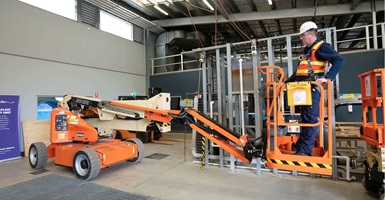What is workplace culture?
Workplace culture is the personality and atmosphere of your business. It encompasses your mission, vision, values, policies and processes. Your workplace culture is also defined by the attitudes, beliefs and behaviours of your leaders, managers and their team members.
Every organisation has a culture, however not all organisations take time to consider what that culture really is. It is more than the organisational culture; it is the department culture and the team culture that exist too” states Chisholm Business and Management Trainer and Assessor Michele Tocci.
Michele suggests, "take time to consider your team culture as this is where you can have the greatest impact. Team culture is the small things, which are really important to the individual. How are people greeted when they arrive? Are people included? How do you celebrate together whether it is a birthday, a new house, a success within the business?”
The way an employee acts and behaves in certain situations can positively or negatively impact your workplace culture and employee engagement with less than a third (29.6%) of Australian employees are highly engaged with their organisation, according to Gartner.
These days, it is quite common to hear of organisations hiring for cultural fit. On the surface this is a sound approach, however, there is limited screening or evidence that can help validate for cultural fit during the recruitment process.
“If an organisation is not clear on their culture at the macro and micro levels then interviewing for cultural fit is a challenge. Culture is from an individual’s experience in the organisation so there can be various perspectives of what organisational culture exists especially in large organisations.” says Michele.
Once a candidate is onboard, it is easy to identify strengths and weaknesses, and what skill gaps exist. A training program can be customised in the areas that will empower the employee, whilst ensuring they will contribute to a positive culture in your business – one where your employees thrive and feel satisfied in their role, and also about the company. Happy employees translate to improved productivity, loyalty and excellent customer experiences.
What soft skills are needed for a positive workplace culture?
We have previously written about the 5 most in demand jobs in Australia and the required knowledge, abilities, activities and skills required to perform the role. Many of the skills listed are soft skills: critical thinking, active listening, judgement and decision making, time management, social perceptiveness and negotiation to list a few.
Michele says, “culture is about people feeling they belong, are included and are valued. This is where soft skills are important, listening, caring, being present. These are important elements for a staff member to be engaged with their organisation. When they are engaged, they bring so much value. It starts with culture. A good approach is to discuss with your team, what culture would they like as a group. What actions and behaviours does that look like? Without these discussions it is organic and that means it is occurring without careful consideration.”
Encouraging your employees to develop their soft skills will infuse into your workplace culture. It equips your staff to deal with numerous interpersonal relationships, varying personalities and situations. For example, if a conflict were to arise, using active listening skills to better understand the opposing ideas and then thinking critically about the pros and cons allows for improved perspective, communication and mutual respect by both parties.
When undertaking learning and development plans, a mix of both soft and hard skills training is necessary to ensure your teams have the right skills now, and into the future. It boosts their skills and enriches a positive culture – a win-win for employee and employer.
According to a recent PriceWaterhouseCoopers survey, less than half (45%) of all employees say their company is upskilling its workers. Workplace culture needs constant attention as it is a catalyst to retention. It strengthens employee engagement and camaraderie, rallies your team towards your shared purpose, motivates employees to go above and beyond in their role, and makes them feel proud to be part of your business.
Like to know more?
Contact an Industry Specialist to learn more about how a Chisholm soft skills course could help your business.


